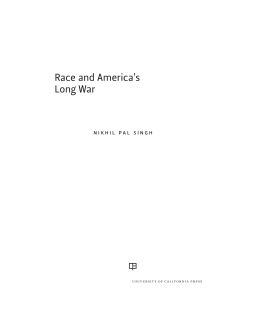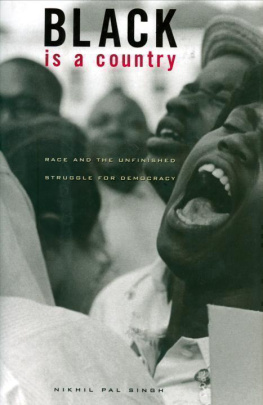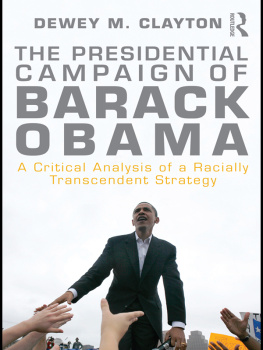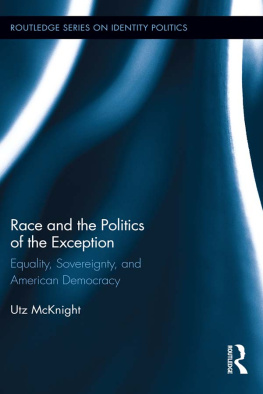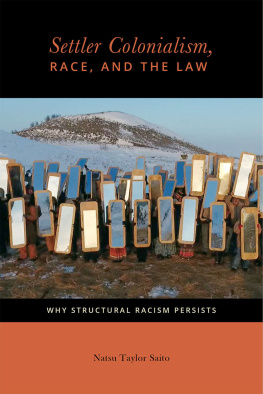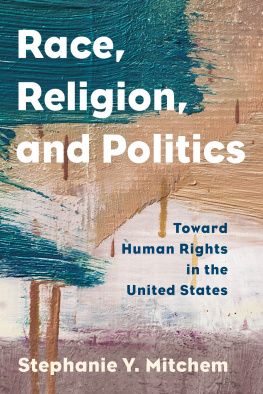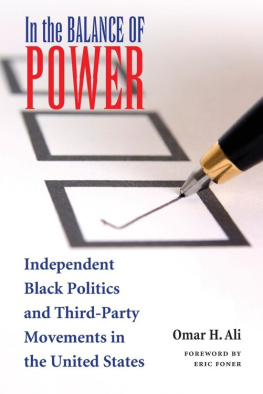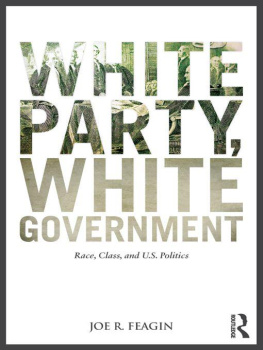Race and Americas Long War
NIKHIL PAL SINGH

UNIVERSITY OF CALIFORNIA PRESS
University of California Press, one of the most distinguished university presses in the United States, enriches lives around the world by advancing scholarship in the humanities, social sciences, and natural sciences. Its activities are supported by the UC Press Foundation and by philanthropic contributions from individuals and institutions. For more information, visit www.ucpress.edu.
University of California Press
Oakland, California
2017 by Nikhil Pal Singh
Parts of chapter 1 first appeared in American Quarterly 66, no. 4, (2014): 109199. Copyright 2014 American Studies Association. Chapter 3 was originally published in South Atlantic Quarterly 105, no.1 (2006): 7193. Copyright 2006, Duke University Press. All rights reserved. Reprinted by permission of the publisher. www.dukeupress.edu.
Beaumont to Detroit: 1943 from The Collected Poems of Langston Hughes by Langston Hughes, edited by Arnold Rampersad with David Roessel, Associate Editor, copyright 1994 by the Estate of Langston Hughes. Used by permission of Alfred A. Knopf, an imprint of the Knopf Doubleday Publishing Group, a division of Penguin Random House LLC. All rights reserved.
Library of Congress Cataloging-in-Publication Data
Names: Singh, Nikhil Pal, author.
Title: Race and Americas long war / Nikhil Pal Singh.
Description: Oakland, California : University of California Press, [2017] | Includes bibliographical references and index.
Identifiers: LCCN 2017023301 (print) | LCCN 2017025293 (ebook) | ISBN 9780520968837 (Ebook) | ISBN 9780520296251 (cloth : alk. paper)
Subjects: LCSH: RacismUnited StatesHistory. | National characteristics, AmericanHistory. | Political cultureUnited StatesHistory. | United StatesSocial conditions. | United StatesPolitics and government.
Classification: LCC E 184. A 1 (ebook) | LCC E 184. A 1 S613 2017 (print) | DDC 305.800973dc23
LC record available at https://lccn.loc.gov/2017023301
Manufactured in the United States of America
26 25 24 23 22 21 20 19 18 17
10 9 8 7 6 5 4 3 2 1
You tell me that hitler
Is a mighty bad man.
I guess he took lessons
from the ku klux klan.
You tell me mussolinis
Got an evil heart.
Well, it mus-a been in Beaumont
That he had his start
Cause everything that hitler
And mussolini do,
Negroes get the same
Treatment from you.
Langston Hughes, Beaumont to Detroit, 1943
The road which leads from the Indian massacres of the last century to the Pentagon and another from the oppressive slave plantation to the ghetto are the major conjunctive highways running through the very center of U.S. life and history.
Jack ODell, The July Rebellions and the Military State, 1967
War and incarceration are supposed to bring good things to the places destroyed in the name of being saved; the devastation wrought overseas in Iraq and Afghanistan is both prefigured and shadowed by the history and current experience of life in the United States itself. The convergence of theory and technique come into view in the construction of the perpetual enemy who must always be fought but can never be vanquished.
Ruth Wilson Gilmore, Race, Prisons, and War, 2008
CONTENTS
PREFACE AND ACKNOWLEDGMENTS
The United States developed its forms of democratic politics and capitalist economics from processes of imperial expansion, colonial dispossession, and racial domination. To observe this is to state a banal truth, yet one that is dimly acknowledged, disavowed, or defensively protested across large swaths of the country. Dispute over the meaning and interpretation of such basic facts gives rise to intense political and ideological struggles over the boundaries of civic belonging and recognition and distributions of material harm and benefit. From abolitionism to the modern labor, civil rights, and black power movements, these struggles have produced exacting visions of solidarity in opposition to racial division and inequality (less so to colonial dispossession) and engendered ever more subtle and intractable forms of accommodation to, and collective reinvestments in, racial and colonial ordering. Until recently, the last point might have been controversial, for many people, perhaps the majority, now reject or condemn slavery, Indian removal, Jim Crow, and racially based immigration and naturalization restrictions, and doubt that similarly extreme forms of exclusion actively shape current U.S. political culture and policy. The successful presidential campaign of Donald Trump shows, however, that no one should be surprised by the resilience of racisms historical legacies and current appeal.
To conceptualize the reanimation and reinvention of racism as more than attitudinal, but rather as a publicly sanctioned ordering of social and economic life along the lines of group inequality and enmity, is no simple matter. An inevitable temptation in the face of its recurrence and disavowal is to lament stubborn continuities of history or deficits of human nature. Racisms manifold extensions from small-scale failures of interpersonal recognition to consequential aggregation and differentiation of group vulnerabilities and privileges is similarly vexing: it can seem omnipresent, yet located nowhere in particular. The great black intellectual and activist W.E.B. Du Bois famously described racial division as the problem [that] cuts across and hinders the settlement of other problems. Du Boiss relentless mastery of discipline after discipline and his scrutiny of local, national and global contexts showed how presumptions of racial hierarchy structured the broad field of what could be known and what could be valued in the modern world. Examining how forces of white supremacy prevailed following the Civil War and Reconstruction, he observed the specific role played by scholars who made a propaganda of history, one in which the testimony of emancipated slaves and their descendants remained barred from court.
The intellectual and political struggles of the past century have lifted some, but not all, of these epistemic blinders. Invariably, racism returns in the double guise of sanctioned violence and sanctioned ignorance that Du Bois identified. Many contemporary antiracists argue that racial violence, and antiblackness in particular, is the ongoing, constitutive basis of U.S. civil and civic organization. A little more than a century ago, the white supremacist, political theorist, and historian John Burgess affirmed this exact point, insisting that any consideration of the rights of barbaric populations was petty and trifling in comparison with the transcendent right and duty to establish political and legal order everywhere. that arrests, deports, and incarcerates millions of people each year disproportionately black people and people of colorand which, in the name of collective security, engages in police and military action all around the world, including summary assassinations of anonymous enemies who possess no rights that Americans are bound to respect, we must ask how far we have progressed from the modes of racial dominance out of which the wealth of modern nations grew.
Those of us who are committed to contesting and overcoming these historical legacies make a mistake, however, when we regard the manifest continuities of racial hierarchy as a sign of its strength and permanence. Collective efforts of reparation, reconstruction, and resistance by and for the enslaved, segregated, undocumented, colonized, and dispossessedthat is, people generationally burdened by socially antagonistic and fragmenting violencehave provided cognitive and moral resources for a different account and accounting. To remain transfixed at the point of racial abjection and brokenness, repeatedly bearing witness to the bareness of life stripped of well-being, rights, and physical protection, can lead to intellectual solipsism and political paralysis, rendering us oblivious to variation and contingency and to the difference made by struggles for survival, political transformation and collective world making. As a regime of power, racial ordering betrays political weakness. Since it must continually secure and even coerce compliance and also prevent defection among perpetrators, it is unstable and ideologically fragile. Dependent upon morally discomfiting public force, it is subject to continual delegitimation. If there is a lesson that I hope to convey, it is not the inexorability of racial domination but the record of social failure that its defectors, critics, opponents, and survivors have illuminated.

